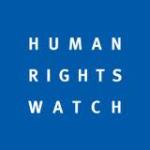
 DANA WAGNER – Dana Wagner is a migration-policy consultant based in Hanoi.
DANA WAGNER – Dana Wagner is a migration-policy consultant based in Hanoi.
The Communist Party has responded to the growth of anti-state blogging with a disturbing crackdown.
MAR 11 2013, 1:04 PM ET – After more than a year in pre-trial detention, five independent bloggers amid other activists stood in a Vietnamese court for two days in January to hear they would live behind bars for up to 13 more years. They join a growing cohort of bloggers imprisoned for “activities aimed at overthrowing the people’s administration,” “undermining of national unity” and committing “propaganda against the Socialist Republic of Vietnam.”
Vietnamese bloggers tasted internet freedom over the last decade as online access grew, but social media is no game changer in a paranoid state. With a mix of insecurity and strength, the Communist Party is gagging dissent in Vietnam with a strategy that entails promoting self-censorship, defaming the swelling ranks of imprisoned dissidents, deploying anonymous pro-Party influencers and holding showcase purges amid a stalling economy.
In one-party Vietnam, the pace and breadth of internet connectivity is astounding. The online population is the world’s eighteenth largest and Vietnam is Facebook’s fastest growing country, according to market researcher We Are Social. Continue reading



